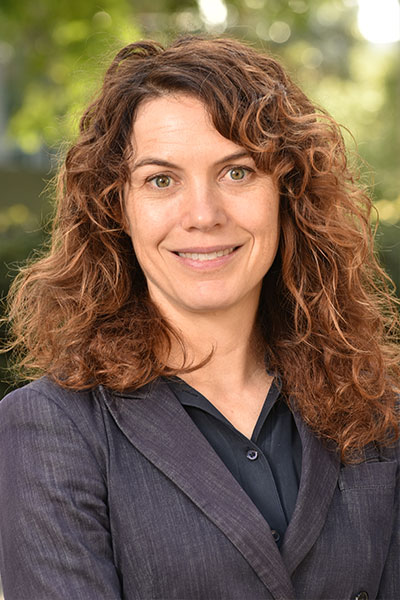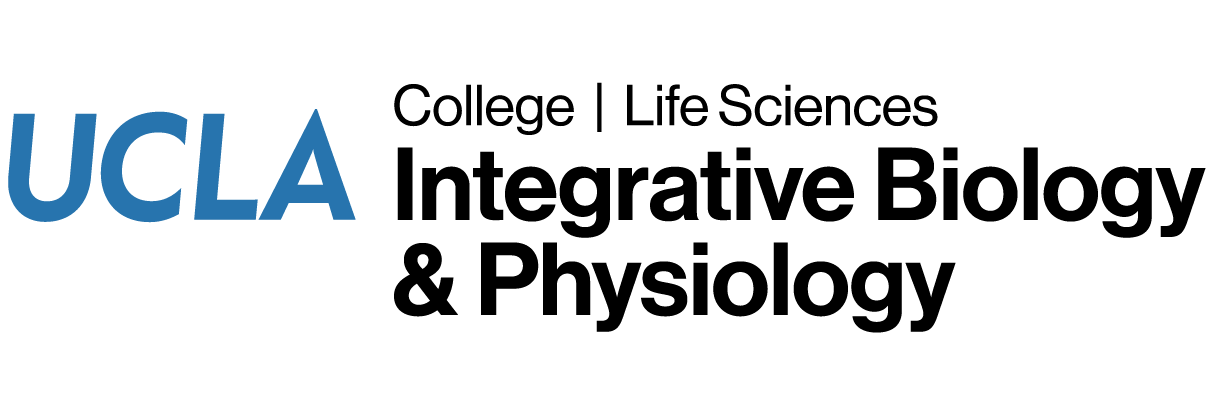Amy Rowat
Professor
Vice Chair of Master's Program
Marcie H. Rothman Presidential Chair in Food Studies

Office: 1125 TLSB
Phone: (310) 825-4026
Website: http://www.physci.ucla.edu/research/rowat/RowatLab.html
Biography
Amy Rowat is a biophysicist with degrees from Mount Allison University (B.Sc. Honors Physics; B.A. Asian Studies, French, & Math), the Technical University of Denmark (M.Sc. Chemistry), and the University of Southern Denmark (Ph.D. Physics). She completed postdoctoral training at Harvard University and Brigham-Women’s Hospital, and was a Research Fellow at the German Cancer Research Center (DKFZ). Rowat is Associate Professor and Vice Chair of Graduate Education in the Department of Integrative Biology & Physiology at the University of California at Los Angeles. She is also a member of the UCLA Bioengineering Department, the Center for Biological Physics, the Jonsson Comprehensive Cancer Center, and the Broad Stem Cell Research Center. Rowat is the author of over 50 scientific papers and inventor on over 6 patents. She is the recipient of numerous awards for excellence in research innovation and teaching, including the prestigious National Science Foundation CAREER award. Rowat has pioneered the use of food to teach sophisticated concepts in science, and has both written and lectured on the topic of science and food to hundreds of UCLA students and public audiences. Rowat is also Founder and Director of the Science&Food non-profit organization and leads the Food Pod of the Semel Healthy Campus Initiative Center at UCLA.
Research Interests
Biology is commonly described in terms of specific genes and chemical reactions – transcription, translation – and cells as sacs filled with DNA. But cells are materials and the physical properties of cells are critical for many physiological functions: how cells deform to circulate through the body; how cells resist mechanical stresses – like stretching or squeezing - is important for homeostasis, and also critical in many diseases where cells have altered physical properties.
In the Rowat lab we think about how tissues and cells sense and respond to external cues in terms of cells as materials: how do cells maintain their physical properties and regulate them in response to external cues?
To address this question we have three main research goals:
1) MEASURE: We are developing new mechanotyping technologies, such as self-assembling scaffolds that have tunable mechanics and topology as well as a deformability screening platform – we recently tested thousands of small molecules and found compounds that make cancer cells stiffer and less invasive; this also enables us to develop systems-level knowledge of the ‘mechanome’.
2) UNDERSTAND: Measuring physical properties are not enough. We are defining the molecules and pathways that regulate cellular mechanotype. For example, we discovered that soluble stress hormones activate a pathway that causes cancer cells to increases the forces they use to pull on their surrounding matrix, which makes them invade more quickly. Knowing that molecules are involved is an important first step towards intervening to stop cancer cells from spreading.
3) TRANSLATE: We are harnessing mechanobiology for translation to applications from cancer to cellular agriculture. In addition to molecules we have identified to stop cancer cell invasion, we are also applying our knowledge to tumors as 3D materials. For example, modulating cellular force generation can change tumor porosity, and ultimately increase the accessibility to chemotherapy drugs. While cancer is a main focus of our work, our approaches can be broadly applied across cell types, and we have also investigated cell physical properties in the context of immune cells to cardiac regeneration to neurological movement disorders such as dystonia to cultured meat.
To achieve these research goals, our multidisciplinary team consists of researchers with backgrounds in cell biology, physics, engineering, cancer progression, systems biology, and chemistry.
Education
B.Sc., Physics, Mount Allison University 1998
B.A., Asian Studies, French, & Math, Mount Allison University 1999
M.Sc., Chemistry, Technical University of Denmark 2001
Ph.D., Physics, University of Southern Denmark 2005
Selected Publications
Kim TH, Ly C, Christodoulides A, Nowell CJ, Gunning PW, Sloan EK♯, Rowat AC♯., “Stress hormone signaling through β-adrenergic receptors regulates macrophage mechanotype and function”, FASEB Journal, (2019) .
Gill NK, Ly C, Nyberg KD, Lee L, Qi D, Tofig B, Reis-Sobreiro M, Dorigo O, Rao J, Wiedemeyer R, Karlan B, Lawrenson K, Freeman MR, Damoiseaux R, Rowat AC (2019) ‘A scalable filtration method for high throughput screening based on cell deformability.’ Lab Chip, 19 (2): 343-357. PMID: 30566156
Sobreiro MR, Chen JF, Novitskya T, You S, Morley S, Steadman K, Gill NK, Eskaros A, Rotinen M, Chu CY, Chung LWK, Tanaka H, Yang W, Knudsen BS, Tseng HR, Rowat AC, Posadas EM, Zijlstra A, Di Vizio D, Freeman MR, “Emerin deregulation links nuclear shape instability to metastatic potential”, Cancer Research, 78 (21): 6086-6097 (2018) [link].
Nyberg KD, Bruce SL, Nguyen AV, Chan CK, Gill NK, Kim TH, Sloan EK, Rowat AC, “Predicting cancer cell invasion by single-cell physical phenotyping”, Integrative Biology, 10 : 218-231 (2018) .
Kim TH, Gill NK, Nyberg KD, Nguyen AV, Hohlbauch SV, Geisse NA, Nowell CJ, Sloan EK, Rowat AC (2016) ‘Cancer cells become less deformable and more invasive with activation of β-adrenergic signaling.’ J Cell Sci, 129 (24): 4563-4575. PMID: 27875276
Kim TH, Rowat AC*, Sloan E*, “Neural regulation of cancer: from mechanobiology to inflammation”, Clinical and Translational Immunology, 5 : e78- (2016) .

612 Charles E. Young Drive East
Box 957246
Los Angeles, CA 90095-7246
(t) (310) 825-4373
(f) (310) 206-9184

